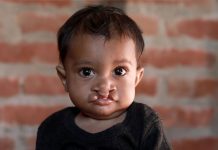Celiac disease is an autoimmune disorder that damages the small intestine and restrains absorbing nutrients from food. The damage is caused by the immune system’s reaction to the gluten. It is also called Sprue, nontropical sprue, and gluten-sensitive enteropathy.
Gluten refers to a type of protein found in grains like wheat, barley, rye, and other grains. It gives the dough elasticity and the bread a chewy texture.
Gluten can also be discovered in several medications, vitamins, and lipstick. Gluten intolerance or gluten-related disorders are identified by the symptoms after consuming foods that contain gluten.
In case someone with celiac disease eats gluten-rich foods, it damages their immune system and destroys the intestinal villi. They are tiny finger-like projections inside the small intestine. If the villi is damaged, the body would not be able to absorb nutrients from food. Eventually, this will lead to malnutrition and other serious health complications including anemia, joint pain, thinning bones, infertility, and neurological diseases.
In such cases, people with celiac disease must avoid foods rich in gluten content.
Symptoms of Celiac Disease
Celiac disease symptoms are related to the intestine and digestive system, but it could affect the other parts of the body too. Remember the symptoms may vary between children and adults.
Children with celiac disease may experience weight loss, vomiting, abdominal bloating, abdominal pain, diarrhea, or constipation.
Adults with celiac disease could report symptoms like anemia, joint pain, fatigue, skin disorders, irregular menstrual periods, and infertility.
Another common symptom of celiac disease is Dermatitis herpetiformis. It is a skin rash with bumps and blisters, that cause intense itch.
Celiac Disease Treatment
The best way to deal with celiac disease is to remove gluten from your diet. Avoiding gluten in your diet will help the intestinal villi to heal, and absorb the nutrients appropriately. Consult with your doctor on how to avoid gluten food. Your doctor will advise you on how to identify the gluten content by checking the food and product labels.
The symptoms will change within the days you stop eating gluten.
Gluten-Free Diet for People with Celiac Disease
In a gluten-free diet, you must avoid gluten foods for the rest of your life. Sometimes a small amount of gluten could trigger the immune system and damage the small intestine.
Following a gluten-free diet is not easy, fortunately, many brands are producing a range of gluten-free foods which are available in supermarkets and grocery stores. The label of the food will state whether or not it contains gluten.
Here are some food guidelines to help you what to eat and what to avoid.
Avoid the following the foods
- Wheat
- Rye
- Barley
- Triticale
- Bulgar
- Graham flour
- Semolina
Avoid these foods unless they are gluten-free
- Beers
- Bread
- Candy
- Cookies
- Cakes
- Pies
- Cereals
- Croutons
- Gravies
- Oats
- Pasta
- Processed foods like hot dogs, and sausages
- Sauces
- Soups
Gluten-free grains and starches include
- Buckwheat
- Corn
- Rice
- Soy
- Quinoa
- Tapioca
- Millet
- Amarnath
- Flax
- Chia
- Potato
- Beans
Other gluten-free foods include:
- Fruits
- Dairy products
- Fish and other seafood
- Nuts
- vegetables
Tips for a Gluten-Free Diet
Here are some effective strategies for a gluten-free diet,
- Segregate the kitchen items used for preparing gluten and gluten-free foods.
- Whenever you eat out ensure the ingredients used in the food, or else you can ask for a gluten-free menu if it’s available.
- Check with your pharmacist if any of your medications contain wheat or derivatives of wheat. Gluten can be found in medicine and even in your lipstick.
- Watch your serving size, gluten-free may be safe but they are not calorie-free.
If you still experience symptoms after eating gluten-free foods, double-check the food before you consume. For children, the intestine heals in three to six months whereas for adults it will take several years to recover. The body will absorb nutrients as soon as the intestine is healed.

















